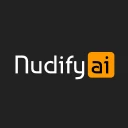Youtube Shorts Created by AI

What Happened to Quickvid.ai? The Rise and Quiet Fall of an AI Video Pioneer
Ever wondered why Quickvid.ai vanished despite riding the wave of generative AI and short-form video? It had all the right buzzwords—AI, YouTube Shorts, Y Combinator backing—and glowing reviews to boot. So what went wrong?
The short answer: Quickvid.ai, despite solid tech and early promise, quietly shut down in early 2025 after running into financial challenges and failing to stand out in an increasingly saturated market.
The long answer? It’s a story of innovation, timing, and the brutal reality of competing in one of the hottest corners of the AI ecosystem. Let’s dive into what made Quickvid special, where it stumbled, and what its story teaches us about the future of AI startups.
What Was Quickvid.ai?
Quickvid.ai launched in 2020, founded by Daniel Habib and based in Mountain View, California. Its mission was simple: make short-form video creation fast, easy, and smart through the power of artificial intelligence.
What Did It Do?
Quickvid's platform helped users—especially influencers, YouTubers, and marketers—automatically generate and edit short-form videos. Its core features included:
- Automated video cuts & voiceovers
- AI-generated subtitles
- Virality scoring
- Dynamic scene layouts
- Smart clip discovery (using "Copilot" and "Autopilot" modes)
The goal? Simplify the creative process and allow users to produce engaging content without needing video editing expertise.
Early Success
Quickvid gained early attention by:
- Joining Y Combinator, one of the world’s top startup accelerators.
- Garnering positive press coverage on platforms like TechCrunch in 2022.
- Attracting glowing user reviews and feature mentions on AI tool directories like Easy With AI, AllThingsAI, and Futurepedia.
But despite this encouraging start, Quickvid didn’t make it beyond the early innings.
Why Did Quickvid.ai Fail?
The Short Answer:
Quickvid.ai shut down due to financial issues caused by insufficient revenue, a lack of new funding, and fierce market competition in the increasingly crowded AI video editing space.
The Long Answer:
Let’s break it down further.
1. Market Fit and Product Challenges
Quickvid had a slick product with clear utility, but its focus on automating YouTube Shorts creation wasn't a surefire differentiator. Competitors offered similar tools that expanded beyond just one platform, providing broader utility and sometimes better customization.
Also, while AI-generated content is appealing, some creators still prefer hands-on control, which can limit the appeal of full automation.
2. Monetization and Revenue Woes
Quickvid operated on a subscription model, but details around pricing or user conversion were scarce. Though user enthusiasm was high, positive reviews don’t always equal paying customers.
With no public record of revenue or strong monetization strategies, it’s likely the startup couldn’t cover increasing operational costs with its income.
3. Competition from All Sides
This may have been Quickvid’s Achilles’ heel. By early 2024, the AI video market was standing-room-only. According to Tracxn, Quickvid had over 200 direct or secondary competitors, including:
- 2short.ai (focused on repurposing podcasts into vertical videos)
- Vizard (editing from long-form content using text)
- TopView.ai and Steve.AI (both well-financed and widely used tools)
Quickvid struggled to carve out a unique niche or scale quickly enough—especially without a significant funding boost.
4. Funding Shortfalls and Burn Rate
According to CB Insights, Quickvid had raised about $500,000 in pre-seed funding. That’s a healthy start for an early-stage AI startup, but not nearly enough to scale in a resource-intensive category like video processing and content generation.
Worse still, there’s no record of any follow-up funding rounds post-Y Combinator. Once the seed money ran out, so too did its runway.
5. Quiet Leadership Exit
Founder Daniel Habib was publicly active as late as 2024, regularly posting updates and promotional content on LinkedIn and YouTube. But in 2025, all signs of activity—from blog posts to new product features—vanished. There was no shutdown post, no farewell announcement.
That’s unusual for a public-facing tech company, suggesting the end might have been sudden, unplanned, or perhaps a quiet pivot to other projects by Habib.
6. External Pressures and Potential Legal Concerns
While there’s no specific evidence of legal trouble, any platform dealing with AI-generated media faces a thicket of copyright and intellectual property risks. Quickvid tried to use “random, copyright-free videos,” but avoiding takedown notices in a space like YouTube is notoriously tricky—and potentially costly.
Competitor Comparison: Why 2short.ai Survived While Quickvid Didn’t
Both Quickvid and 2short.ai targeted creators of short-form content, but the devil’s in the details.
Here’s where 2short.ai gained an edge:
- Clearer niche: 2short.ai focused on transforming long-form videos (especially podcasts) into TikTok/YouTube clips—a use case with higher demand.
- Broader integrations: It supported multiple platforms and formats, not just YouTube Shorts.
- User scale: 2short.ai boasted more monthly users and continued engaging with them via tutorials and updates into 2024.
- Growth-focused marketing: 2short.ai invested heavily in SEO and community marketing, whereas Quickvid had most of its buzz early on but didn’t maintain momentum.
In short: 2short.ai evolved and scaled. Quickvid didn’t.
Lessons Learned & Final Thoughts
The story of Quickvid.ai is a reminder of how unforgiving the AI space can be. Even with strong tech, positive reviews, and initial funding, startups must find product-market fit, move fast, and, most importantly, scale sustainably.
What Quickvid Got Right:
- Clear use case
- Solid user experience
- Early traction
What Ultimately Sank It:
- No follow-up funding
- Intense competition with little differentiation
- Modest monetization, and maybe modest ambition too
Yet, Quickvid's legacy lives on as proof that AI can dramatically lower the barrier to content creation. Its early adoption of AI co-editing, automation, and virality scoring were ahead of their time—and likely inspired other startups that are thriving today.
FAQs About Quickvid.ai
Who Founded Quickvid?
Daniel Habib founded Quickvid.ai in 2020. He previously worked in tech and media innovation.
When Did Quickvid Come Out?
Quickvid was founded in 2020 and became publicly available around 2022.
When Did Quickvid Shut Down?
Though no official announcement was made, Quickvid.ai appears to have shut down quietly in early 2025.
How Much Funding Did Quickvid Raise?
Quickvid raised approximately $500,000 in pre-seed funding, reportedly from Y Combinator and early investors.
Why Did Quickvid Fail?
Quickvid failed due to financial challenges—low revenue, no additional funding rounds, and a highly competitive AI video market.
What Happened to Its Technology and Team?
There’s no public record of acquisition. It’s likely the technology was mothballed or privately sold, and the team disbanded or moved on to other projects.
Want more breakdowns like this one? Stick around—we’re diving deep into more fallen startups each week. Because in every failed launch, there’s something to learn.
What is quickvid.ai?
Quickvid.ai is an AI-powered platform designed to facilitate the efficient creation of high-quality YouTube Shorts videos. Utilizing advanced AI technology, Quickvid.ai offers users the ability to generate professional-looking videos at a significantly accelerated pace compared to traditional methods. By integrating multiple generative AI systems into a single tool, Quickvid.ai automates the process of producing short-form videos, including the addition of voiceovers. To gain early access to this platform, interested individuals can sign up for the waitlist.
How does quickvid.ai work?
Quickvid.ai is a versatile tool that operates through the analysis of text, subsequently generating a script for a concise video. To enhance the user experience, Quickvid.ai offers a wide range of pre-recorded voices, allowing for automatic voiceovers in the generated videos. In addition, the tool employs a selection of random, copyright-free videos that align with the specified keywords and topic. Users also have the option to manually compose their video scripts, which can be read aloud by the AI voice through text-to-speech functionality. It is worth noting that Quickvid.ai has plans to incorporate various other video formats, including blog post to video and reaction videos, expanding its range of capabilities.
How much does quickvid.ai cost?
Quickvid.ai employs a freemium pricing model, allowing users to access the platform for free initially, with the option to unlock additional features through payment. Furthermore, Quickvid.ai offers a free trial period, after which users are required to subscribe to continue using the service. The paid plans commence at $10 per month and provide a range of benefits including increased video quantity, extended duration, custom branding options, and other additional features.
What are the benefits of quickvid.ai?
Quickvid.ai offers several notable advantages:
- Accelerated Video Creation: Quickvid.ai leverages its AI-powered platform to expedite the video creation process. Unlike traditional tools that may take hours or days, Quickvid.ai enables users to generate videos within minutes, saving valuable time and resources.
- High-Quality Output: Quickvid.ai ensures the production of videos with exceptional quality. Its AI platform incorporates robust editing capabilities and provides professional voiceovers, guaranteeing a polished and engaging final product.
- Customization Options: Users have the flexibility to personalize their Quickvid.ai videos according to their brand or preferred style. The tool offers a diverse range of customization features, including font selection, color schemes, styles, voiceover options, as well as access to a library of stock footage and music.
- Versatile Video Types: Quickvid.ai supports the creation of various video formats, catering to different needs. These include YouTube shorts, blog posts transformed into videos, reaction videos, and more, allowing users to diversify their content and reach a wider audience.
- Engaging Content Creation: Quickvid.ai empowers users to generate captivating content suitable for multiple platforms. Whether it's for social media, websites, blogs, or product presentations, Quickvid.ai facilitates the creation of engaging and attention-grabbing videos to enhance online presence and audience engagement.
What are the limitations of quickvid.ai?
Quickvid.ai does have certain limitations to consider:
- Dependency on Third-Party Services: Quickvid.ai relies on various third-party services such as OpenAI, Eleven Text to Speech, AWS, and Google Cloud. Users must adhere to the Terms of Service of these providers when utilizing Quickvid.ai.
- Service Downtime: Quickvid.ai does not assume liability for any potential loss, damage, or inconvenience caused by service downtime. The platform operates on an ""as is"" and ""as available"" basis, implying that interruptions in service may occur.
- Limitations in Topic Handling: Quickvid.ai may encounter challenges in generating videos for certain topics or texts. Complex or niche subjects might pose difficulties for the AI platform to effectively process and create suitable videos.
- Originality and Accuracy: Quickvid.ai may not be able to guarantee the originality or absolute accuracy of the generated videos. The AI platform might utilize existing content or encounter errors during the editing or voiceover process, potentially impacting the final output.
It is important to consider these limitations while utilizing Quickvid.ai for video creation purposes.
What is QuickVid and how does it help with video creation?
QuickVid is a generative AI video tool designed to automate short-form video creation with just a single click. It helps creators by cutting up videos into viral clips, enhancing them with automatic subtitles, and posting them directly to platforms. The tool offers two modes: Copilot, for manual editing and narrative control, and Autopilot, for hands-off, automated content creation. It also provides features like AI-powered Virality Score, Smart Clip Discovery, Dynamic Layouts, AI Speaker Detection, and generated metadata to streamline the video editing process and maximize content reach.
How does QuickVid's Copilot and Autopilot modes differ?
QuickVid offers two distinct modes - Copilot and Autopilot. Copilot is ideal for creators who prefer manual control over their content, allowing them to upload, edit, and post videos with fine-tuned details. It provides the freedom to select specific segments for platforms like YouTube shorts. On the other hand, Autopilot is perfect for busy creators seeking a hands-off approach. This mode automates the video editing process by seamlessly cutting up videos, making smart edits, and posting them to channels, allowing for consistent content output without manual intervention.
What advanced AI features does QuickVid offer for video enhancement?
QuickVid is equipped with advanced AI features to enhance video creation. It offers Auto-Subtitles, allowing automatic enhancement of videos with a variety of subtitle styles. The AI-powered Virality Score helps evaluate a clip's potential to go viral by analyzing successful video patterns. Smart Clip Discovery identifies engaging moments to streamline editing, while Dynamic Layouts provide various presentation modes to dynamically showcase content. AI Speaker Detection keeps the video focused on active speakers, and AI-generated metadata simplifies content management by crafting titles and descriptions that resonate with the audience, making posting more effective.

































